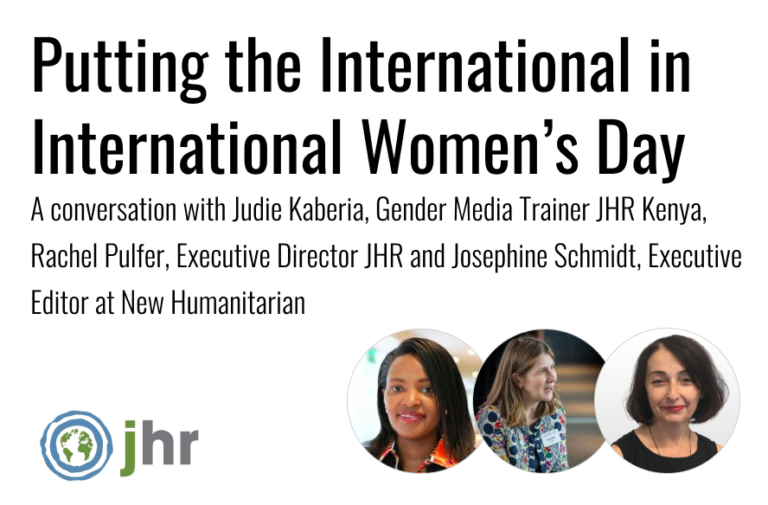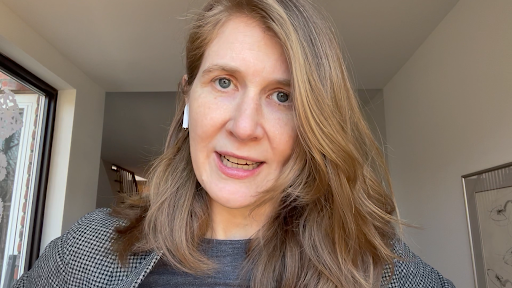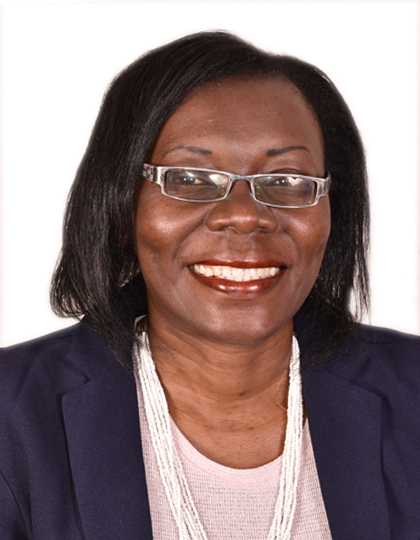This week’s highlights
- Sign up today for JHR’s Webinar: Putting the International into #InternationalWomensDay
- JHR joins its voice to the #WomenInJournalism campaign
- Interviewing Marceline Nyambala on Women’s Leadership in Media
- Introducing Board Member Shelly Meadows
- Apply Now! The Gordon N. Fisher/JHR Journalism Fellowship at Massey College 2021/2022
- Celebrating the legacy of Hodan Nalayeh
- Apply Now ! Media Girlfriends Scholarships for High School Students in Canada
Sign up today for JHR’s Webinar: Putting the International into #InternationalWomensDay
This #InternationalWomensDay, join JHR Gender Media Trainer Judie Kaberia, JHR Executive Director Rachel Pulfer and New Humanitarian Executive Director Josephine Schmidt for a special presentation on how COVID-19 has disproportionately affected women and girls’s rights worldwide and the leadership role that journalists can play in centering and addressing women’s and girls’ voices and concerns.
Monday March 8 10:30am EST
Click here to sign up.
JHR Executive Director joins the Coalition for Women In Journalism this International Womens’ Day to Celebrate Women Journalists Around the World
Photo Credit: JHR
This International Women’s Day, The Coalition For Women In Journalism (CFWIJ) launches a social media campaign to celebrate women journalists and their contribution to the industry. In line with JHR’s goals of centering women and girls’ voices and rights in coverage, the campaign #WomenInJournalism amplifies the voices of female reporters and their extraordinary work. In light of JHR’s work with women and girls’ voices and concerns worldwide, the campaign invited JHR Executive Director Rachel Pulfer to contribute a video to the collection. Pulfer drew attention to three extraordinary women journalists, Karyn Pugliese, Sandra Bashengezi and Nisreen Anabli, who each contributed papers to Half the Story is Never Enough, a p
International Women’s Day is a day to celebrate women journalists and their work. So join in ! Follow #WomeninJournalism on Twitter, retweet Rachel’s and other women journalists’ videos, and share your own about your experience, about somebody who inspires you, something that drives you.
Our message for women journalists this International Women’s Day? Studies have shown that women’s voices and leadership are crucial to peacebuilding efforts, from Liberia to South Sudan. So raise your voice, and be counted!
Interviewing Marceline Nyambala on Women’s Leadership in Media
Marceline Nyambala, Executive Director AMWIK
To celebrate International Women’s Day 2021, JHR is excited to profile exemplary female leaders working to ensure women have a seat at the decision-making table.
Marceline Nyambala is a journalist and gender rights advocate working as the Executive Director of the Association of Media Women in Kenya (AMWIK). AMWIK is one of the leading media women’s associations in Sub-Saharan Africa, and JHR’s key implementing partner in its project “Canada-World: Voice for Women and Girls” in Kenya.
AMWIK’s vision is that of society in which the media in Kenya embraces and promotes equitable development, human rights and women rights. AMWIK uses the media to promote an informed and gender responsive society in Kenya and Africa.In the last 30 years, AMWIK has worked in 32 out of the 47 counties in Kenya and touched thousands of lives.
UN Women recently announced the theme for this year’s International Women’s Day as “Women in leadership: Achieving an equal future in a COVID-19 world.” Based on your perspective as the Executive Director of AMWIK, what are some of the biggest barriers to female leadership in the media sector in Kenya?
The biggest barrier is in the mind, not having a vision to be in leadership and therefore not preparing for it. On a practical note, not being on beats that have provided opportunities for career progression. Thereafter, the reasons are similar to all barriers facing women in leadership including child bearing and related to lack of time to build skills and networks/sources and confidence and other related reasons. In newsrooms the environment also causes some women to plan their exit from the media to Public Relations including hostile working environmen, sexual harassment and online violence.
How has the pandemic impacted gender equality and women leadership within the media sector?
In everything women sometimes get disproportionately affected on account of many dynamics. Women were equally retrenched and faced salary cuts, however women had to work from home which is normally a good thing, but at the height of the pandemic when schools had closed, there was a 7pm curfew, religious spaces and all and this put a lot of pressure on the women to work from the domestic front.
What role can organisations such as AMWIK and JHR play to advance female leadership and gender equality in the Media?
AMWIK has continued to provide mentorship to its membership and training opportunities that help members strengthen their career prospects, organizations such as AMWIK and JHR need to invest in further capacity building and at different levels to ensure a pipeline of skilled women available to be deployed to take leadership. In the recent past AMWIK has worked with JHR in engaging on issues around Sexual harassment, which has been a big hindrance to many female journalists and a major reason why some don’t return to media houses after their attachment, parents discouraging their daughters from journalism as well premature exit from the profession. We have also done capacity training on reporting Gender based Violence a big challenge currently in the wake of the pandemic. These trainings need to be regular as media houses constantly have new personnel.
.
Introducing Board Member Shelly Meadows
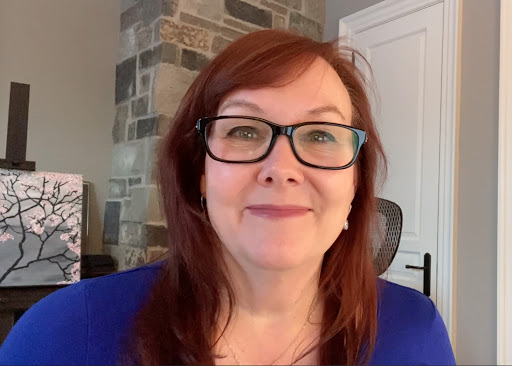 Photo Credit: Navigation Consulting
Photo Credit: Navigation Consulting
Shelly is the co-founder of Navigation Consulting & Training, a consulting firm focused on both supporting, and promoting, healthy work environments, including assisting organizations with workplace harassment investigations. As a Chartered Professional Accountant, Shelly also has over two decades of experience in the professional services environment with a breadth of experience primarily in the areas of corporate restructuring, regulatory compliance, and risk management. In her work, she makes a regular practice of supporting and mentoring women’s leadership. Shelly has a Master of Business Administration from the University of Toronto.
Beyond work, Shelly enjoys sailing, squash, live theatre and random acts of kindness. She is excited to be on the Board of JHR and a member of the audit committee.
Apply Now! The Gordon N. Fisher/JHR Journalism Fellowship at Massey College 2021/2022
 2019/2020 Fellow Nancy Emefa Dzradosi
2019/2020 Fellow Nancy Emefa Dzradosi
The Gordon N. Fisher/JHR Journalism Fellowship at Massey College in the University of Toronto is an annual opportunity for a journalist from the following regions to participate in the William Southam Journalism Fellowship Program: Sub-Saharan Africa and the Middle East, with preference given to candidates from Liberia, Sierra Leone, Ghana, Tanzania, Malawi, South Sudan, DR Congo, Syria, Jordan and Indigenous candidates from JHR’s Indigenous Reporters Program. Funded by the Alva Foundation in memory of the former president and chief executive officer of the Canadian newspaper and communications company, Southam Inc., the grant allows the Fellowship to be held annually at Massey College and the University of Toronto under the auspices of Journalists for Human Rights.
2019/2020 recipient, Nancy Emefa Dzradosi, is a Ghanaian journalist who specializes in field reporting, anchoring and production. Her works focus on Human rights and Environment. Nancy currently leads Joy FM and Accra Metropolitan Assembly’s Clean Ghana Campaign. In 2018 and 2019, her stories on abandoned lepers and a mentally pregnant woman reignited national conversation on social exclusion. Nancy has a bachelor’s degree in Sociology and linguistics from the University of Ghana. She lives in Accra, Ghana.
Click here to apply no later than March 31, 2021.
Celebrating the legacy of Hodan Nalayeh
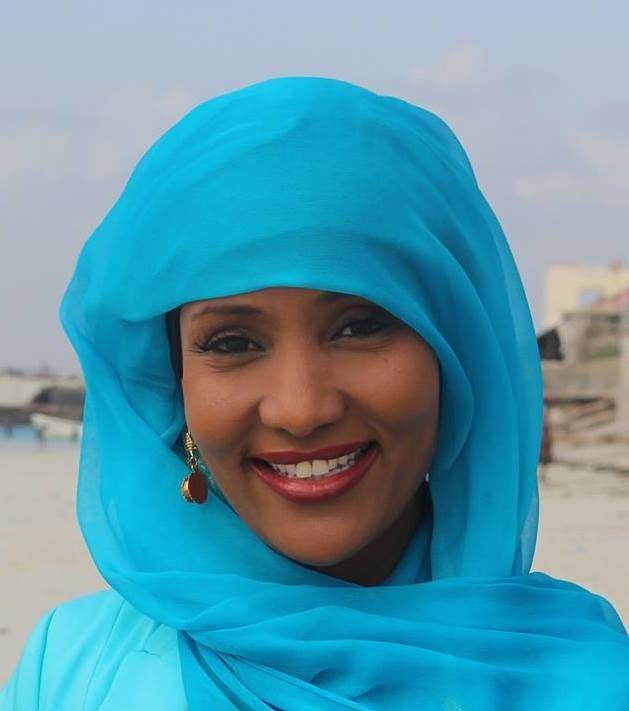 Photo of Hodan Nalayeh by Hamdi Sbaa at English Wikipedia
Photo of Hodan Nalayeh by Hamdi Sbaa at English Wikipedia
Journalists for Human Rights is delighted to share the news that a high school in Vaughan, Ontario will be renamed in honour of Somali-Canadian journalist and JHR Human Rights Reporting Award 2019 laureate Hodan Nalayeh. JHR honoured Nalayeh in 2019 for her work producing and championing stories drawn from across multicultural identities in Canada, in particular for her work telling the stories of Somalis to the Somali diaspora. Nalayeh was tragically killed while on assignment in Somalia in July 2019. For more details, please see this article from JHR partner CTV News.
Inspired by Hodan Nalayeh’s example? Apply Now to the Media Girlfriends Fellowships
Media Girlfriends is a podcast company, network & student scholarship. Media Girlfriends support women & non-binary journalists. They work to promote more perspectives in Canadian media, particularly those by Black, Indigenous and other people of colour. Media Girlfriends started as a podcast by Nana aba Duncan, currently a William Southam Journalism Fellow (see above) and formerly JHR’s country director in Ghana !
Journalism students: Apply for a new $10,000 CAD Media Girlfriends scholarship for Black high school students pursuing journalism at a post-secondary institution in Canada, and/or one of two $10,000 CAD Media Girlfriends scholarships for women/trans/non-binary students pursuing journalism, communications, media or tech. Deadline is April 30, 2021. More information, including how to apply, is at https://www.mediagirlfriends.
********************************
Land Acknowledgement
We wish to acknowledge the land on which the Journalists for Human Rights’ head office operates and recognize the longstanding relationships Indigenous nations have with these territories. For thousands of years it has been the traditional land of the Huron-Wendat, the Seneca, and most recently, the Mississaugas of the Credit River. Tkaronto (Toronto) is in the Dish with One Spoon Territory and is home to Indigenous peoples from many nations across Turtle Island who continue to care for this land today.
To read more on JHR’s land acknowledgement, click here.



